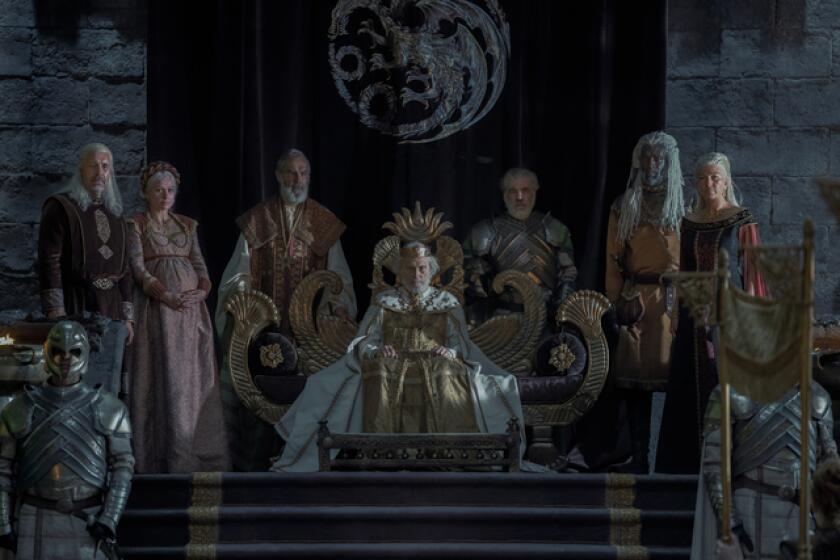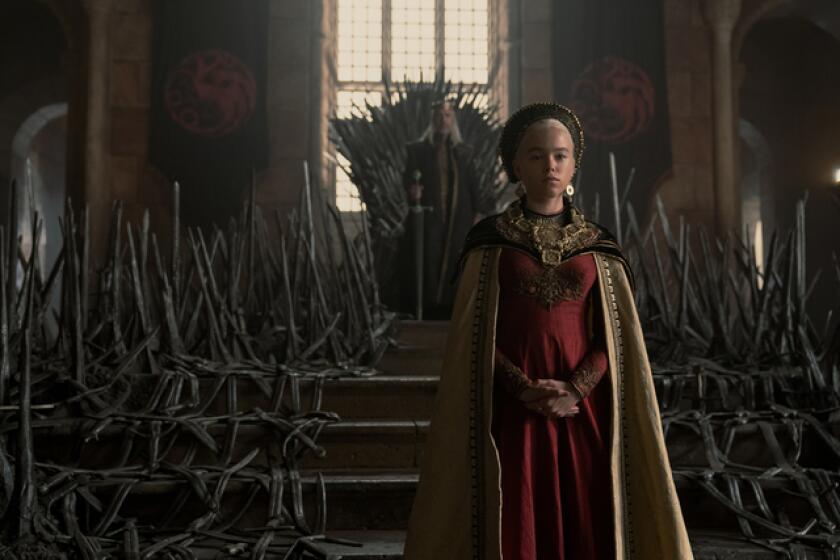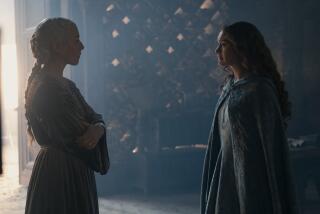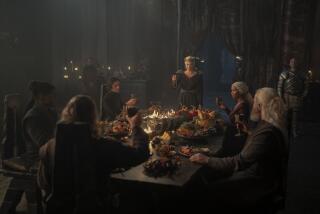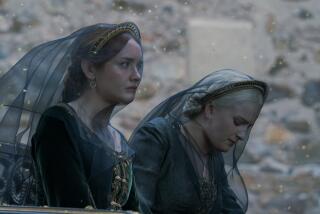‘Game of Thrones’ fumbled Daenerys’ story. ‘House of the Dragon’ is making amends
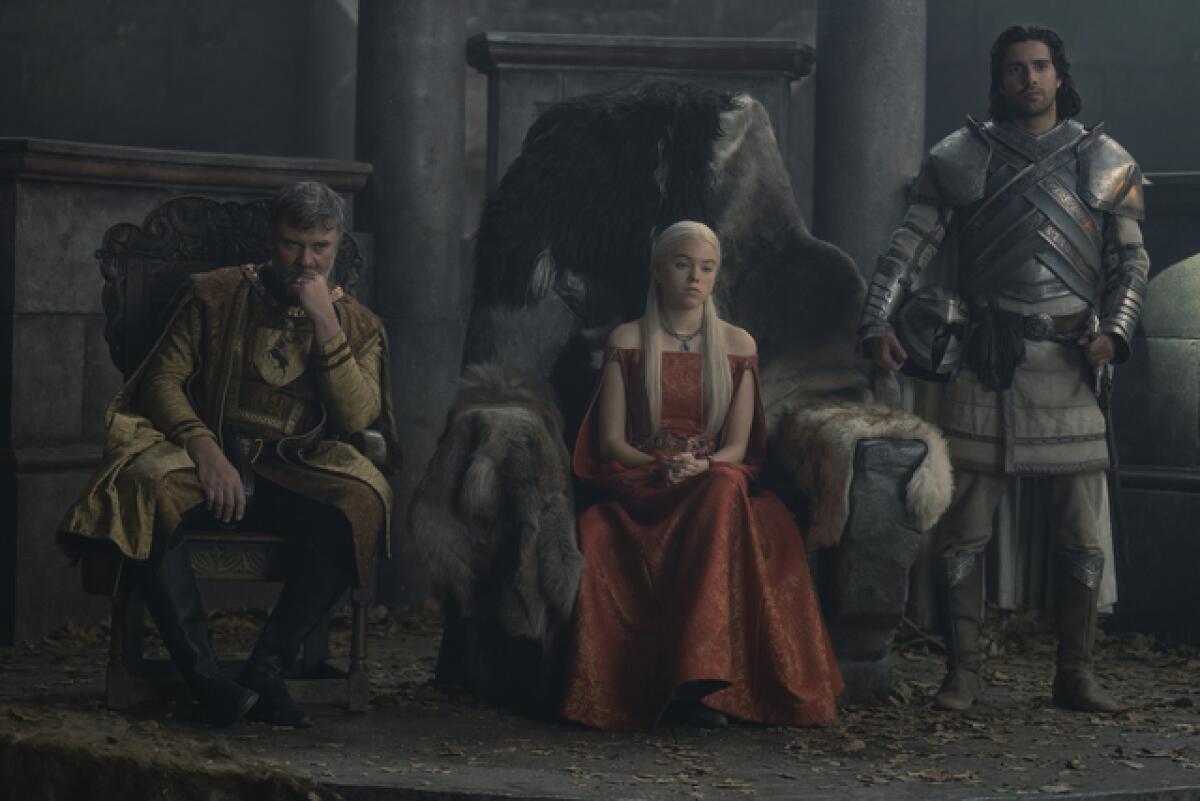
Warning: The following contains spoilers from Episode 4 of “House of the Dragon,” “King of the Narrow Sea.”
“House of the Dragon’s” young Princess Rhaenyra Targaryen is a lucky girl. She has freedom, security and guile, luxuries the women of “Game of Thrones” weren’t allowed until they suffered all manner of violence and indignity over multiple seasons.
We’re only at the fourth episode of the HBO prequel series, and already there are hints that Rhaenyra (Milly Alcock) possesses Daenerys Targaryen’s dragon-riding prowess and warrior heart, Cersei Lannister’s scheming talents and Arya Stark’s rebellious spirit, particularly when commanded to “act like a lady.”
The young royal is the product of mistakes learned in the original series, particularly through Dany’s demise. Like many of the women of “Game of Thrones,” who were regularly raped, abused, imprisoned, starved or married off to sadistic pigs, she was made to suffer before she was allowed a shred of sovereignty. And when Dany was finally poised to win the throne, the Breaker of Chains and Mother of Dragons was killed off mere feet from the seat of power. She was denied the prize because she misused her authority, burning innocents alive on her way to conquering King’s Landing. But was it worse than the blood on the hands of the men who ruled Westeros before her, or those who might come after? Was she allowed to redeem herself, like Tyrion and Jamie Lannister? For female fans who watched the show, her end echoed a familiar office dynamic: Men fail upward, and benefit from chance after chance. Women’s failures are fatal, because they get only one shot.
Things are different in the Westeros of “House of the Dragon,” set nearly 200 years before Dany’s birth. Rhaenyra does the unthinkable in this week’s episode, and she’s not disowned or dead — yet. Her discretion is all the more stunning since King Viserys (Paddy Considine) has finally allowed her to choose a husband rather than arranging her marriage. But matrimony is the last thing the 17-year-old wants. Rhaenyra turns down a procession of suitors, from frail old men to fragile young boys, rolling her eyes at “the ridiculous pageant.”
Whether you’re new to Westeros or making a long-awaited return, here’s everything you need know about the ‘Game of Thrones’ prequel, updated weekly.
She later complains to her childhood friend, Alicent Hightower (Emily Carey), about the exhaustive tour of would-be husbands.
Alicent, who is now the queen, says, “Tis rare for girls in this realm to get a choice between two suitors, no less two score of them.”
“They only want my name and my Valyrian blood for their offspring,” complains the princess, to which the queen replies, “I think it’s rather romantic.”
“How romantic it must be to get imprisoned in a castle and made to squeeze out heirs.” Poor, perpetually pregnant Alicent. It’s the story of her teen life.
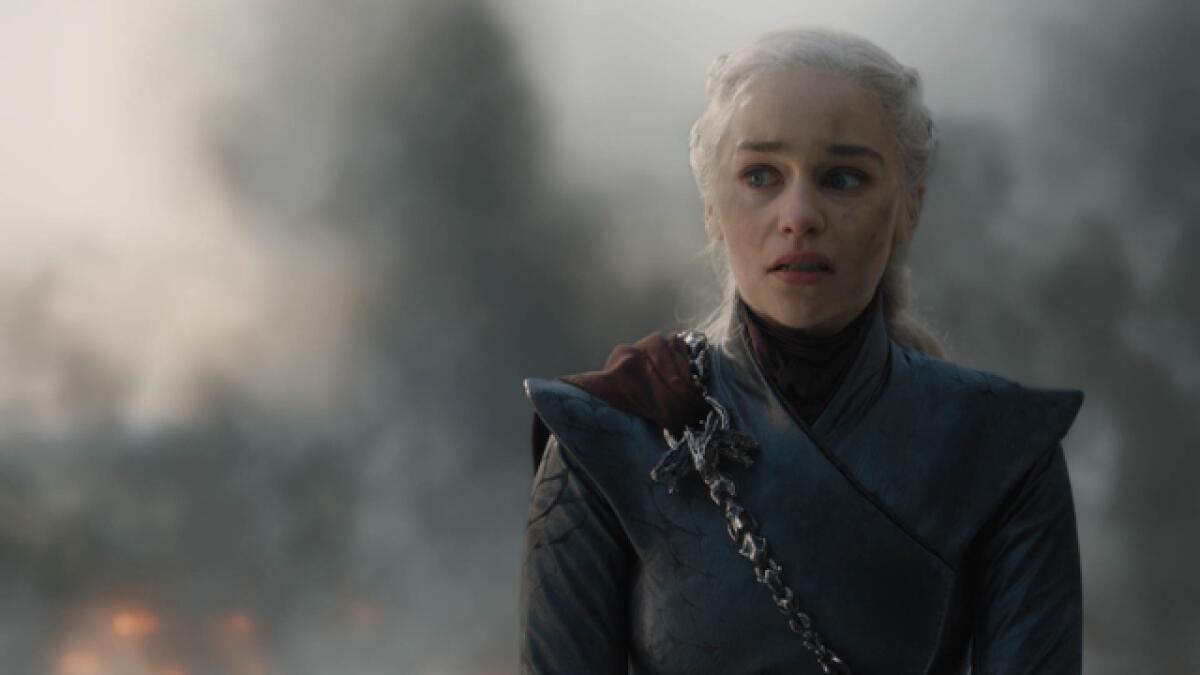
Though rebellious, Rhaenyra is still naïve in many ways, and her dastardly uncle, Prince Daemon (Matt Smith), sees an opportunity in that innocence. He urges her to sneak out of the castle with him at night, and disguised in boy’s clothing, she witnesses the spectacle and debauchery of The Keep. He takes her to a brothel, where there are notably more men on the payroll than in Littlefinger’s whorehouse (another notable change in this version of Westeros). The orgy stirs her passions and Daemon begins to seduce her publicly — then literally leaves her there with her pants down. She returns to King’s Landing and in turn woos her knight and protector, Ser Criston Cole (Fabien Frankel).
The princess removes his armor and clothing. She initiates their roll on the royal bed sheets, choosing with whom and when she loses her virginity. It was a surprising turn of events in a gripping but brutal saga where barbarism over girls and women has been an essential part of the game.
“House of the Dragon” will delight fans with a new, engrossing chapter in the saga — one that matches and at times improves on its predecessor.
But “House of the Dragon” isn’t a progressive reimagining of the Seven Kingdoms, for all of the protestations of “fans” who’ve criticized the prequel as too “woke” simply for including Black characters and self-possessed women. Even on its face, the changed social mores make sense: “House of the Dragon” takes place in a different time from “Game of Thrones,” and a lot can evolve — and regress — over two centuries.
Alicent is a prime example of the norm for royal ladies in this version of Westeros. As the princess finds pleasure with the hot young knight, the mother of two fulfills her duty as a queen: Staring blankly at the ceiling, she lays on the bed under the old, rotting king as he grunts away on top of her. It’s the epitome of sacrificing for the realm.
There are other signs that “House of the Dragon” has imbued Rhaenyra with more than her predecessors (in the social order of the HBO series, at least). Her strong survival instincts kick in when a spy divulges she was in a brothel where she appears to have “lost her honor” to her uncle, and it’s here we witness her potential as a masterful tactician. Cunning in women is often a negative attribute reserved for evil queens and witches, but here, it’s a potential superpower in the making.
It’s still to be seen if Rhaenyra will be allowed to soar, or have her wings clipped if she gets too high, à la Dany. There are still six episodes to go, and it’s a franchise renowned for obliterating fans’ expectations for their favorite characters. But for now, “House of the Dragon” has artfully set two excellent series apart by empowering a young princess.
More to Read
The complete guide to home viewing
Get Screen Gab for everything about the TV shows and streaming movies everyone’s talking about.
You may occasionally receive promotional content from the Los Angeles Times.
